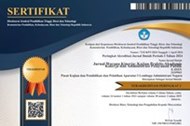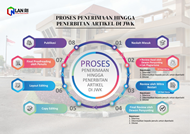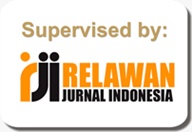Penerapan E-Government melalui Aplikasi Masagi Musrenbang di Desa Ciburial
Abstract
The Ciburial Village Government has developed an innovation in order to make changes to the process of compiling a list of community proposals in the Village Development Planning Deliberation (Musrenbang Desa) process, namely through the Masagi Musrenbang application. The Masagi Musrenbang application is a website-based application used to input, store, and inform a list of community proposals through the RW head based on the results of deliberations at the RW level for the purposes of compiling village planning. This study aims to determine the utilization, obstacles and efforts that can be made in the utilization of the Masagi Musrenbang application in Ciburial Village in terms of the success factors of e-Government implementation. This study uses a descriptive qualitative approach. Data collection in this study was carried out through interviews, observations, and documentation studies. The results of this study indicate that the use of the Masagi Musrenbang application in Ciburial Village shows a positive step in the effort to digitize village development planning in a participatory manner. This application has supported the process of inputting community proposals through the RW Head, although it still faces a number of obstacles such as limited human resource capacity, internet infrastructure constraints, differences in user devices, and budget limitations. There are several efforts to support the utilization of the Masagi Musrenbang application produced in this study, including: The Ciburial Village Government needs to immediately strengthen the institution by establishing a clear division of tasks related to the management of the Masagi Musrenbang application and allocating a special budget in the Village Budget for the development and maintenance of the application.
Keywords
References
Baskoro, C. A. (2020). Partisipasi Masyarakat Dalam Perencanaan Pembangunan Berbasis Website E-Musrenbang . UIN Sunan Ampel Surabaya.
Creswell, J. , W. (2009). Research Design: Qualitatitve, Quantitaive, and Mixed Methods Approaches. Sage.
Dawud, J., Ramdani, D. F., & Abubakar, R. R. T. (2021). The Urgency of the Public-Private Partnership Scheme in the Management of Electronic Parking in Bandung City. 2nd International Conference on Administration Science 2020 (ICAS 2020), 73–77.
Faizah, N., & Sensuse. (2009). Faktor-Faktor Sukses Implementasi E-Government di Empat Kabupaten/Kota di Indonesia. Digital Information & System Conference. .
Gordon F. Thomas. (2002). E-Government – Introduction, ERCIM News No.48
Hernikawati, D. (2013). Pengelompokan Implementasi E-Government Tingkat Provinsi dengan Analisis Klaster. Jurnal IPTEK-KOM, 15(1), 63–74.
Indrajit. (2016). Electronic Government: Strategi Pembangunan dan Pengembangan Sistem Pelayanan Publik Berbasis Teknologi Digital. Andi.
Maryam, N. S. (2016). Mewujudkan Good Governance Melalui Pelayanan Publik. Jurnal Ilmu Politik Dan Komunikasi, 6(1).
Mukhsin. (2020). Peranan Teknologi Informasi dan Komunikasi Menerapkan Sistem Informasi Desa Dalam Publikasi Informasi Desa di Era Globalisasi. Jurnal Teknologi Dan Komunikasi, 3(1).
Mustafadidjaya, AR. (2003). Sistem Administrasi Negara Kesatuan Republik Indonesia (SANKRI). Lembaga Administrasi Negara Republik Indonesia.
Praditya, D. (2014). Pemanfaatan Teknologi Informasi dan Komunikasi (TIK) di Tingkat Pemerintahan Desa. Jurnal Penelitian Komunikasi, 17(2), 129–140.
Safira, E. (2020). Pemanfaatan E-Musrenbang Dalam Meningkatkan Efektivitas Perencanaan Pembangunan Daerah di Tingkat Kelurahan Kota Medan. Jurnal Ilmiah Mahasiswa Ilmu Sosial Dan Ilmu Politik, 2(3).
Sugiyono. (2017). Metode Penelitian Kuantitatif, Kualitatif, dan R&D. Alfabeta.
Sugiyono. (2019). Statistika Untuk Penelitian. Alfabeta.
Tjuju & Siswanto. (2009). Kepemimpinan Dalam Organisasi. PT. Remaja Rosda Karya.
Tumilantouw, N. (2019). Optimalisasi Pelayanan Publik di Kantor Kecamatan Suluun Tareran Kabupaten Minahasa Selatan. Jurnal Mirai Management, 4(1).
Wibowo, D. A. (2018). Perlindungan Hukum Terhadap Desa di Indonesia. Jurnal Spirit Publik, 13(1), 79–85.
Wijaya, E. dkk. (2013). Desa Digital: Peluang Untuk Mengoptimalkan Penyebarluasan Peraturan Perundang-Undangan di Indonesia. Jurnal Dinamika Hukum, 13(1).
Winastwan, R. E. (2020). Mekanisme Digitalisasi Terhadap Koleksi Langka di UPT Perpustakaan Proklamator Bung Karno Blitar. Jurnal Ilmu Perpustakaan Dan Informasi Islam, 6(2), 59–64.
Article metrics
DOI: https://doi.org/10.31845/jwk.v28i1.973
Refbacks
- There are currently no refbacks.
Copyright (c) 2025 Rodlial Ramdhan Tackbir Abubakar, Dimas Dwi Prasetya
License URL: http://creativecommons.org/licenses/by-nc-sa/4.0
JURNAL WACANA KINERJA INDEXED BY:
__________________________________________________________________________________________________________
@2025 National Civil Service Talent Policy Strategy and Learning Center (Pusat Pembelajaran dan Strategi Kebijakan Talenta Aparatur Sipil Negara Nasional Lembaga Administrasi Negara - Pusjar SKTAN) Jl. Kiara Payung KM. 4, 7 Jatinangor, Sumedang, Jawa Barat 45366 Telp. (022) 7790048-7790044-7790049-7782041-7782042 Fax. (022) 7790055-7782178; Email: wacanakinerja@yahoo.com; wacanakinerja@gmail.com
Powered by OJS















